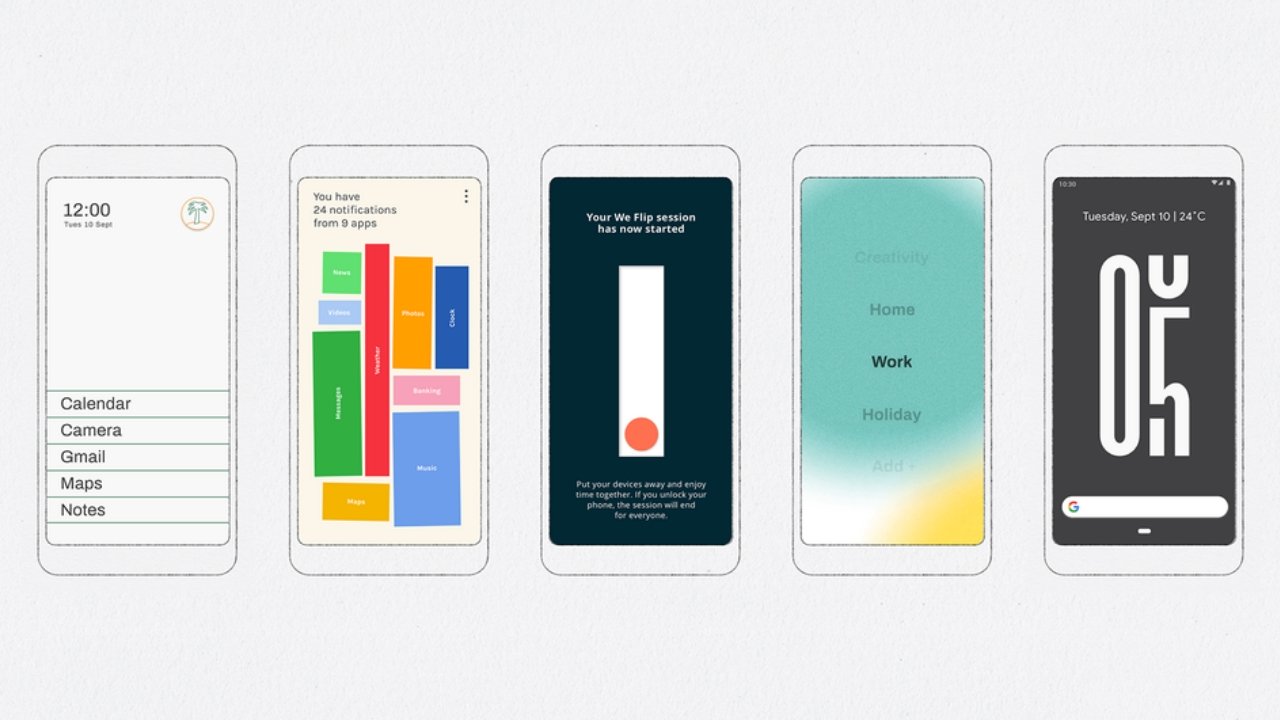Google has launched Digital WellBeing Experiments, a program that encourages app developers and designers to build digital wellbeing into their products. Reportedly, Google had launched its Digital WellBeing program last year at the Google I/O 2018.
Google launches six new Digital WellBeing apps
Now Google has built a set of experimental apps that will reveal just how much time you spend glued to your phone and maybe even encourage you to put it down for five minutes.
A few weeks ago, Google has said that all the new Android phones must come with a ‘digital wellbeing’ app installed to show how long you’ve been using particular apps, how many notifications your apps have generated, and how many times they’ve been launched. The figures might be alarming and could shock you into cutting back.
However, the phone manufacturers are free to develop their own apps to serve this purpose, but Google has forged ahead and released a suite of experimental tools to demonstrate how it might be done.
As per the reports of Android Police, the apps are available for all Android devices, though most require you to be running at least Android 8.0 Oreo.
The six Digital WellBeing Experiments that Google has launched are:
Unlock Clock: It is a wallpaper that displays a large counter on your phone’s home screen that ticks up each time you unlock your phone. The counter starts at 0 and goes on until the number of times you access your phone. Google says that this experiment will not appear as an app. Instead, you can access it in the Live Wallpaper library section of your smartphone once you have downloaded it from the Play Store.
Post Box: It collects all your notifications and only reveals them at a scheduled time, so you aren’t tempted by the lure of WhatsApp during the day. Users can choose how often they would want their notifications to be delivered. Google wrote in the description of the app, “When they arrive, they’ll be neatly organized for you to go through.”
We Flip: This app is aimed to help people disconnect with their phones when they are sitting in a group. You and your friends or colleagues all install the app on your phones, which detect one another using Bluetooth. The first person to crave into temptation and turn their phone over ‘loses’.
Desert Island: This app lets you pick the five apps that are most important to you, and hides the rest, forcing you to prioritize the tools you actually need.
Paper Phone: It enables you to print a paper copy of all the important information you’ll need throughout your day (such as your calendar events and tasks), and turn them into a little booklet that you can refer to instead of your phone, with its various time-sapping temptations.
Morph: This app allows you to create ‘modes’ for your phone (such as ‘work’, ‘evening’ and ‘weekend’) with different apps available, and switch between them automatically at different times of day, or when you’re in a particular place.
Google Creative Lab team lead, Emma Turpin wrote in a blog post, “We’ve open-sourced the code and created guides for others to make their own experiments. We hope these experiments inspire developers and designers to keep digital wellbeing top of mind when building technology.”
It’ll be interesting to see whether Google chooses to install any of these by default on future handsets, or perhaps even combines them into a digital wellbeing suite. Meanwhile, you can try these and check if these help you to break your phone addiction

Leave a Reply